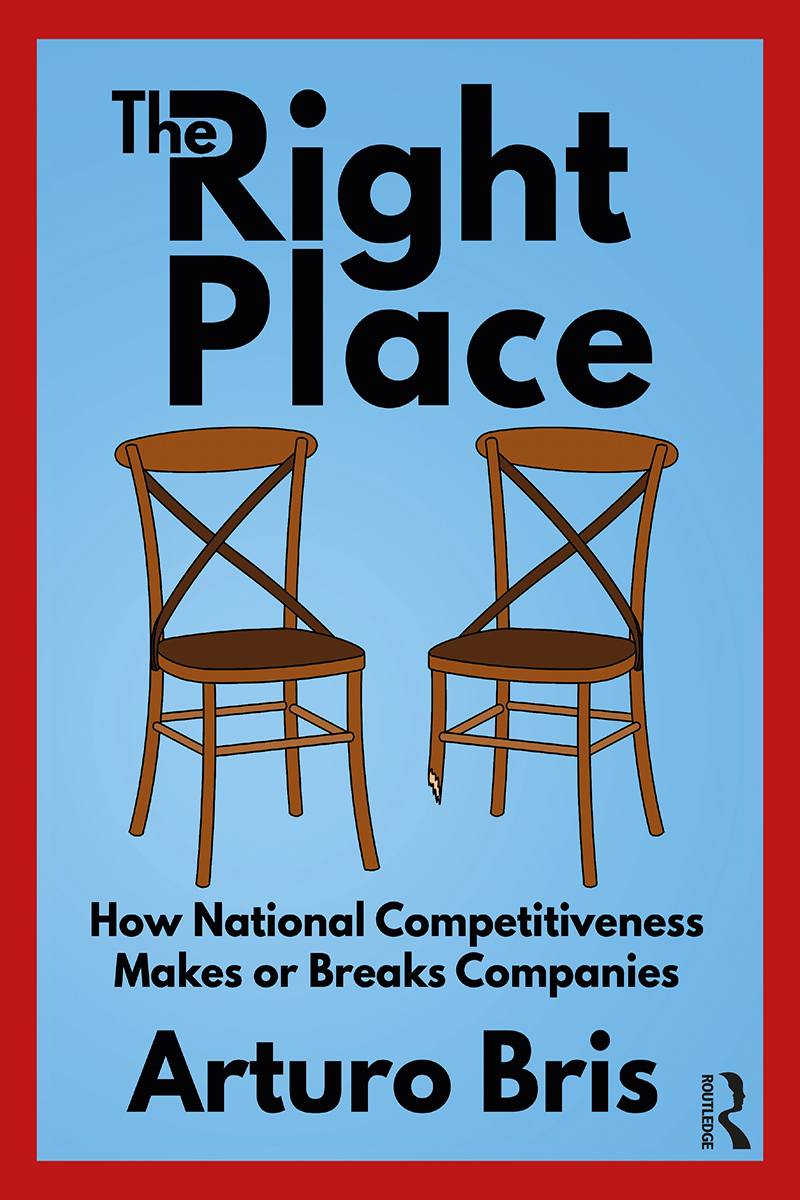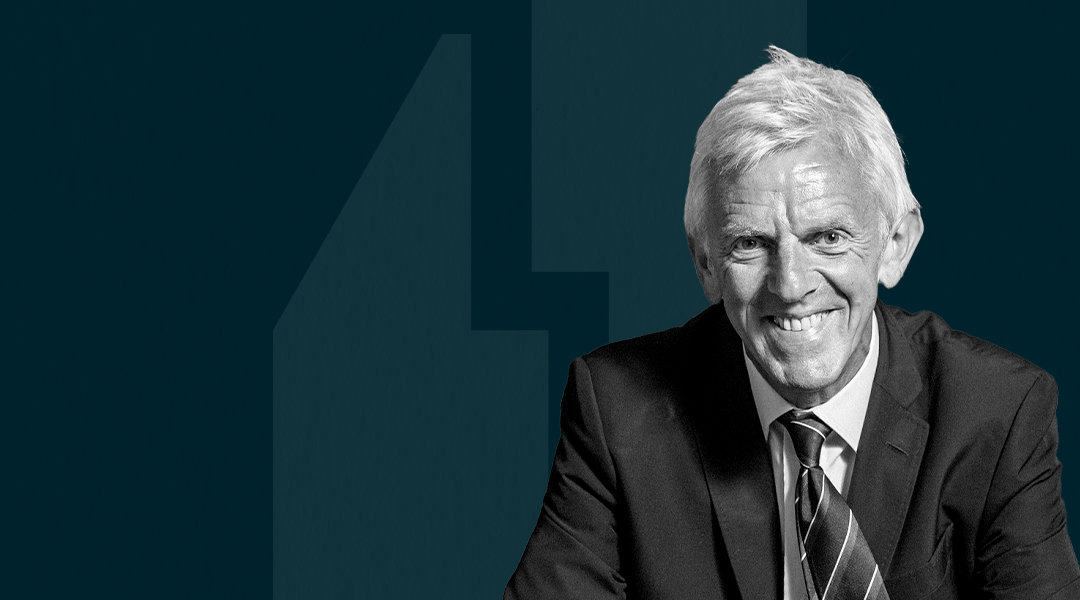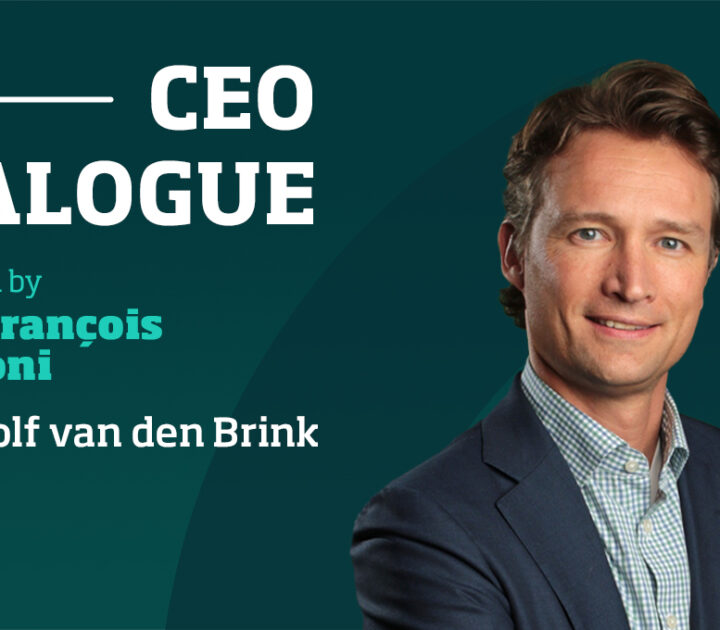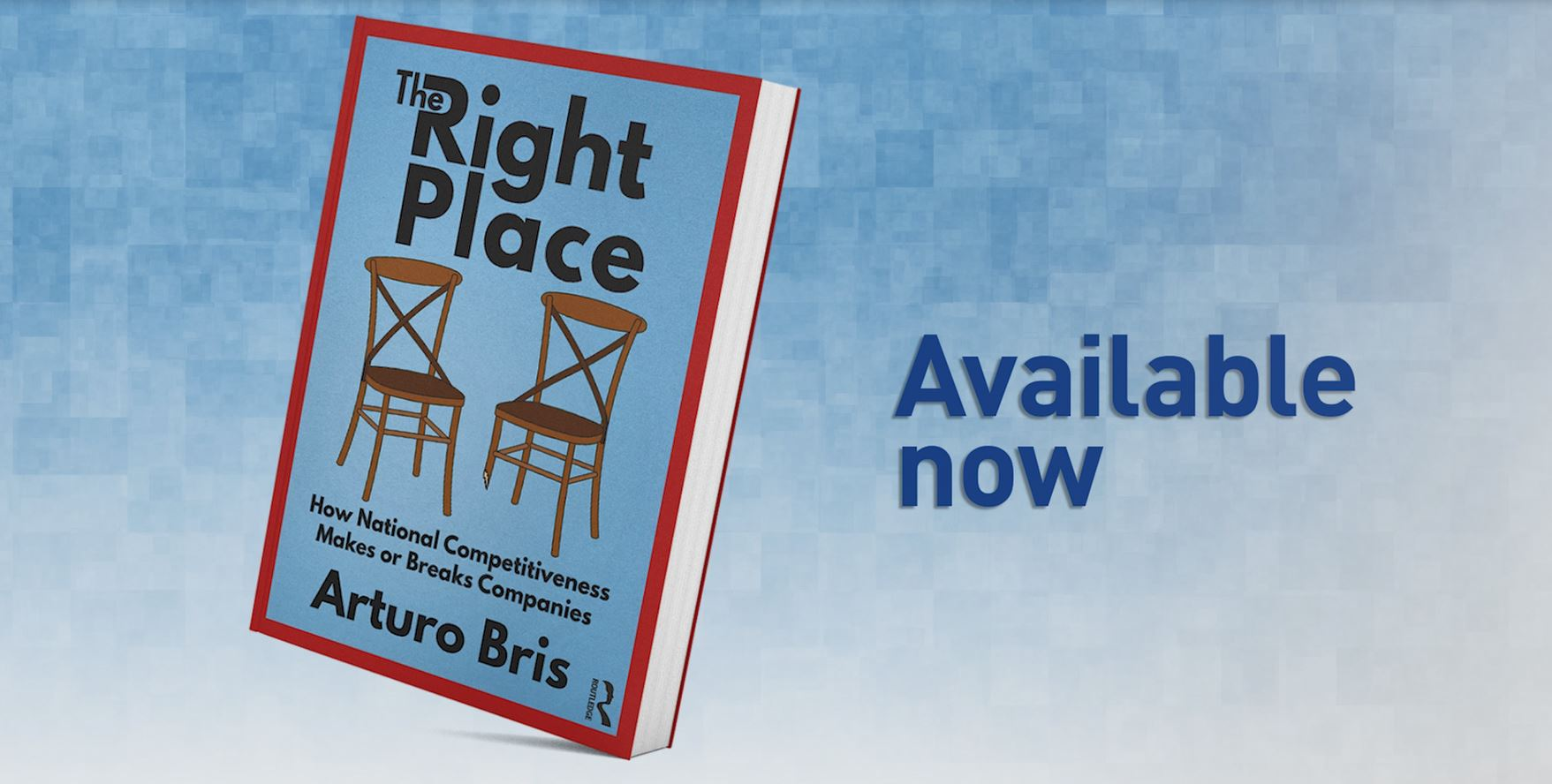The Right Place
Enormously ambitious, wide-ranging and filled with insights. A marvellous and
impressive book that makes you re-think how and why businesses thrive (and fail).
There is no silver bullet for competitiveness. Many books promise quick fixes, but
the wisdom in this new book by Arturo Bris is taking an ecosystem approach. This
is the holistic roadmap emerging markets need to catch the next waves of productivity
and globalization.
Arturo Bris is the superstar of country competitiveness. Over the years we have
enjoyed his annual reports and rankings on the competetiveness of nations around
the globe. In this seminal book he shows us why it matters for business. A warm
recommendation to anyone interested in decision-making beyond the state and
survival strategies of companies.
Why do similar firms succeed in one country but fail in another, irrespective of their strategic choices?
Competition and macroeconomics expert, Prof. Arturo Bris, believes that a country’s economic success and national competitiveness is not unlike a cycling race. If you want to ride fast, you need three things: a good bike, to be in good shape, and a smooth and fast road. You might say the business is the bicycle, the business leader is the cyclist, and the road is the government and the external environment. The responsibility of a government is to design and build the best possible road. And it turns out that when the road is good, good cyclists suddenly appear and want to race on it.
In his new book, The Right Place, Arturo Bris provides an analysis of countries’ competitive performance based on 30 years advising governments and institutions around the world on this topic. The typical mistakes that countries make are highlighted, while the pillars necessary to build a truly competitive economy are revealed to provide a roadmap for government organisations to follow.
Bris suggests potential initiatives that governments can implement to help the private sector create jobs, support small businesses, nurture innovation, attract talent, and other steps to help make their countries more prosperous. He draws on fascinating real-life case studies, from the rebranding of Thailand and Israel’s move to become a start-up hub, to Norway’s gender equality efforts and Bhutan measuring itself on Gross National Happiness. The book provides an illuminating read for politicians, government institutions, and students of macroeconomics, while giving invaluable insights for business leaders to give themselves the best possible chance of success in their macroeconomic environment.
Research Information & Knowledge Hub for additional information on IMD publications

You can also buy the book on Barnes & Nobles, Book Depository, Orell Füssli and Routledge.

Arturo Bris is Professor of Finance at IMD. Since January 2014 he is also leading the world-renowned IMD World Competitiveness Center.
At IMD he directed the Advanced Strategic Management program from 2009-2014. He has…

Arturo Bris is Professor of Finance at IMD. Since January 2014 he is also leading the world-renowned IMD World Competitiveness Center.
At IMD he directed the Advanced Strategic Management program from 2009-2014. He has directed programs for senior executives in several industries and continents. Prior to joining IMD, Professor Bris was the Robert B & Candice J. Haas Associate Professor of Corporate Finance at the Yale School of Management (USA). A Research Associate of the European Corporate Governance Institute, and a member of the Yale International Institute for Corporate Governance, he has worked extensively on issues of Corporate Governance, Financial Regulation, and International Valuation.
His research and consulting activities focus on the international aspects of financial regulation, and in particular on the effects of bankruptcy, short sales, insider trading, and merger laws. Arturo Bris has also researched and lectured on the effects of the Euro on the corporate sector, as well as on the valuation impact of corporate governance changes.
Arturo is passionate about global competitiveness, financial development and macroeconomics. His latest research identifies the relationship between income inequality, social mobility and competitiveness. He is also developing a competitiveness-based investment portfolio that track the best and worst economies.
His work has been published in the Journal of Finance, the Journal of Financial Economics, the Review of Financial Studies, the Journal of Legal Studies, and the Journal of Business, among others. His latest book, Blockchange! provides insights on how to survive the crypto economy.
Professor Bris taught Corporate Finance and Investment Banking at Yale from 1998 to 2005, where he received the Best Teacher Award twice. His consulting experience includes companies in both the US and Europe.
He is the President of the Board of Trustees of the IMD Pension Foundation, and a member of the Supervisory Board of the International School of Lausanne. He is a frequent speaker in international conferences, and appears regularly on international media outlets.
Professor Arturo Bris ranks among the top one hundred most-read finance academics in the world. He graduated in Law and Economics from Universidad Autónoma de Madrid, and received an MSc from CEMFI (Foundation of the Bank of Spain). He holds a PhD in Management from INSEAD. He enjoys reading, road- and mountain-biking, and playing bass guitar.
For further information, an interview with Arturo Bris, a guest article or a review copy of The Right Place: How National Competitiveness Makes or Breaks Companies, please send us a message
IMD produces a yearly Smart City Index offering a balanced focus on economic and technological aspects of smart cities on the one hand, and “humane dimensions” of smart cities (quality of life, environment, and inclusiveness) on the other. In this...

How China's journey of self-reliance, innovation, and strategic resilience under "Made in China 2025" continues to redefine its global role amid ongoing geopolitical tensions and renewed policy challenges.

Your gut instinct matters in a data-driven world. IMD’s Heather Cairns-Lee & Eugene Sadler-Smith explain how intuition enhances decision-making in uncertainty.
With stagnant import volumes since 2021, and import prices at levels below those suggested by fundamentals, foreign exporters face an uphill battle to convert access to the Chinese market into revenues. Notably, the volume stagnation predates the ...

Early in his career, Dolf van den Brink did everything he could to project an image of authority – including wearing spectacles he didn’t need. It wasn’t until he learned to be comfortable in his skin that he began to excel as a leader, he tells ...
It has become conventional wisdom to view Europe as an economic powerhouse past its prime, overshadowed by the steady advance of the US and meteoric rise of China. Critics cite Europe’s shrinking share of global GDP, excessive regulation, and slug...
Now in its eighth year, the 2024 IMD World Digital Competitiveness Ranking measures the capacity and readiness of 67 economies to adopt and explore digital technologies as a key driver for economic transformation in business, government, and wider...

A balanced assessment of the past eight years is that, in terms of trade policy, America has turned protectionist, implementing significant measures to restrict domestic market access to foreign (non-US) imports.

Key minds behind the Hinrich-IMD Sustainable Trade Index – Deborah Elms, Chuin Wei Yap, Christos Cabolis, and Simon Evenett – explain how decision-makers can benefit from looking at industrial policy in granular detail, given its resurgence and th...
Inflows of foreign direct investment into China shows worrying trends despite its massive economy. While total FDI appears substantial at $163B in 2023, most growth comes from existing foreign subsidiaries rather than new entrants. Foreign manufac...
IMD World Competitiveness Center Report, 8 April 2025
Research Information & Knowledge Hub for additional information on IMD publications
Research Information & Knowledge Hub for additional information on IMD publications
Research Information & Knowledge Hub for additional information on IMD publications
Research Information & Knowledge Hub for additional information on IMD publications
Research Information & Knowledge Hub for additional information on IMD publications
Research Information & Knowledge Hub for additional information on IMD publications
IMD World Competitiveness Center Report, 14 November 2024, 8th edition
Research Information & Knowledge Hub for additional information on IMD publications
Research Information & Knowledge Hub for additional information on IMD publications
Research Information & Knowledge Hub for additional information on IMD publications
Research Information & Knowledge Hub for additional information on IMD publications


